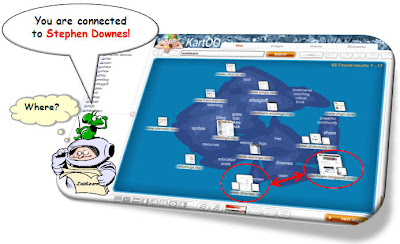
“The mediocre teacher tells. The good teacher explains. The superior teacher demonstrates. The great teacher inspires.” - William Arthur Ward
Can anyone become a great educator (teacher or lecturer)? Or is it gift that we are born with (Nature)? Or can we become a great educator through learning, practice, feedback, reflection, etc. (Nurture)? Or perhaps it is a combination of Nature and Nurture? Or perhaps it is neither? What are the characteristics of a great educator anyway?
WHAT GOOD TEACHERS SAY ABOUT TEACHING?"At the University of California at Berkeley, the Distinguished Teaching Award was instituted in 1959 to recognize and reward excellence in teaching. Since the inception of the award, over 150 faculty in forty-eight departments have been honored...although these essays (by the award winners) were prepared independently over a number of years, there are striking similarities about what good teachers say about teaching. On at least ten propositions, the contributors are in near or total agreement (
Source):
The teacher's main task is to guide students through the learning process, not to dispense information.
The goal of teaching is to help students read, speak, write, and think critically—and to expect students to do these things.
Learning is a "messy" process, and the search for truth and knowledge is open-ended.
Good teachers love their subject matter.
Good research and good teaching go hand in hand. Students' engagement with the subject is enhanced by knowing about the teacher's own research, and the interaction with students often provides new insights into the research.
The best teachers genuinely respect students and their intellectual capabilities.
Good teachers are rarely satisfied with their teaching. They constantly evaluate and modify what they do.
Good teachers usually had good teachers, and they see themselves as passing on their own teachers' gifts to a new generation of students.
Good teachers treasure the small moments of discovery in the classroom and the more enduring effect they have on students' lives.
Good teachers do not see teaching as separate from other activities; rather, they see their lives as remarkably integrated."
The interesting thing today, is that we increasingly have access (if we have Internet!) to all sorts of content about the art of excellent teaching (
A short list). In addition, we can also study and reflect amazing lecturers through video lectures and podcasts from many of the most respected Universities around the world, including MIT, Harvard, Yale, Oxford and Cambridge (
YouTube Channels,
Podcasts and
OpenCourseWare).
So, why can't we inspire all our students to learn (if you can, please share your secret!)? That is a tough question beyond my intellect, knowledge and experience (I suppose because it needs two to tango)! However, let's play a bit with this question, and instead ask, "what were the least inspiring teachers we experienced during our student days?" Or more specifically, "What were the teaching habits that inspired us out of learning?"
5-PART SERIES?In this 5-part series (which might evolve into a 10-part series!), I will reflect specific teaching habits practiced by some educators that I experienced personally during my 20 years career as a student (I suppose when I do my PhD I can add another 3-4 years). I am not interested in witch hunting any particular educator (I am really bad with names anyway, so that is not a problem!). Instead, I am trying to reflect back and learn from their teaching habits (and perhaps avoid them!) that made me wonder: Are you kidding me? Is this guy for real? This guy needs a life! What is wrong with him? Can't he see that we are sleeping! Don't teachers undergo training on how to teach and facilitate learning? Perhaps he doesn't care!
Since I have had the privilege to experience educators from every major continent of the world during my 20-year career as a student, I suppose I will have some very interesting teaching habits to share with all of you. Whether they are bad teaching habits or not, I will leave that for you to decide. But one thing is for sure, these teaching habits certainly inspired me out of learning.
Finally, before we begin this 'unlearning' journey, I have to admit I have never been an easy student to deal with. During my primary and secondary school I was rude, noisy, and spent a lot of time in detention. I literally slept through high-school, and just managed to scrape through. Once, one lecturer threatened to kick me out of class if I didn't stop sleeping, and even placed me in the front row to ensure that I didn't sleep. It didn't help much! When you are tired, and have to sit through a boring lecture, what do you expect! I suppose if I had taken more vitamin supplements, given up on football, stopped having fun, and slept earlier, things would have been different. I suppose it is a learning process!
Then I moved to Malaysia, and the power of faith (Islam) brought the passion back to learn in me. During my undergraduate and graduate days, I forced myself to sit in the front row until it became a habit I am proud of. Not only did I sit in front, I also become the ultimate annoying student that always asked questions. I became the kind of smart-aleck I used to despise in my younger days. In a nutshell, that is my story as a student. Now, let's move on to the real point of this 5-part series.
WHITEBOARD AND I ARE ONE!

During my undergraduate studies, I had a very interesting
statistics lecturer, which I will name
Dr. Woody (woodpecker) for the name protection sake. Dr. Woody was a multimedia encyclopedia of statistics, and he certainly did not need to refer to any book or notes during his lectures. He had perfected every lecture he conducted. In addition, he was a caring guy and always smiled. So, what is the problem! Yeah! Hmm, got a point there!
Interestingly, I had two different statistics (can't remember the names!) subjects with Dr. Woody that semester, and we only had a 10-minute break in-between the two 90-minute sessions twice a week (6 hours a week with Dr. Woody).
Dr. Woody was always punctual and so was I. I remember, he would always be stressed at the beginning of each class and would be eager to start as fast as possible, so that we could complete the syllabus on time. As soon as he began teaching, he would face the whiteboard with his markers, and begin the magic statistics writing adventure. And you know what, he would just go on, and on, and on, and on, like a dog hunting a fox. His urgency to do his thing (teach!), gave him no time to turn back and assist the helpless students in shock! We managed to complete 50% of the syllabus within the first 3 weeks of a 14-week semester. Of course it was impressive to see Dr. Woody practically write the book on the whiteboard, doing it at a speed that even Ferrari would not be able to match.
My fingers (and brain) used to be really exhausted after two consecutive 90-minute sessions (twice week) of nonstop writing (15-25 pages of notes each time!), trying to capture everything that Dr. Woody wrote on the whiteboard. Thank GOD many lecturers today use PowerPoint, or provide some form of course notes. However, we have to keep in mind that taking notes itself, is a skill that all students should master. Because in most working environments, there probably won't be any books or notes to rescue us, and solve all our problems.
REFLECTIONIt was only after I discovered notes taken from his previous students that I realized how amazing Dr. Woody's memory was. It was as if he had imprinted the notes and formulas in his brain, and simply repeated it again and again every semester. Even a photocopy machine would be proud of such perfection. Although, we got to experience him do his thing (process flow!), it was kind of overwhelming, and I believe most of us had problems dealing with the information overload. I suppose if we could replay the lecture in slow motion (many times!), it would be more useful.
Interestingly, when I revised the notes I had taken from Dr. Woody's lectures, I couldn't even remember that I had written them. Did I really write that! I suppose I had no time to think while taking the notes.
Overall, Dr. Woody was knowledgeable, skillful, caring, experienced, and an expert in his subject area. However, I am not sure I learned much about statistics from him. Actually, I didn't! Though, since I had the passion to do well, I managed to do quite well anyway.
But, what is important to keep in mind here, is that being an authority in a knowledge domain, does not mean that we are fit to educate and facilitate learning. Even worse, some educators have an amazing ability to make you sick of a subject (They might argue that it is self-inflicted!). Is that a natural gift, too?
Although, it is important to learn new ways to improve our teaching, it is also important to reflect our own existing teaching methods, and perhaps unlearn those that really inspire people out of learning.
Until Part II, let's explore our own teaching, and try to point out to ourselves (at least!) a few habits that might turn students off learning.
"That student is an idiot! I have told him a 100 times and he still doesn't get it!" :)
5-PART SERIES



 During my undergraduate studies, I had a very interesting statistics lecturer, which I will name Dr. Woody (woodpecker) for the name protection sake. Dr. Woody was a multimedia encyclopedia of statistics, and he certainly did not need to refer to any book or notes during his lectures. He had perfected every lecture he conducted. In addition, he was a caring guy and always smiled. So, what is the problem! Yeah! Hmm, got a point there!
During my undergraduate studies, I had a very interesting statistics lecturer, which I will name Dr. Woody (woodpecker) for the name protection sake. Dr. Woody was a multimedia encyclopedia of statistics, and he certainly did not need to refer to any book or notes during his lectures. He had perfected every lecture he conducted. In addition, he was a caring guy and always smiled. So, what is the problem! Yeah! Hmm, got a point there!
